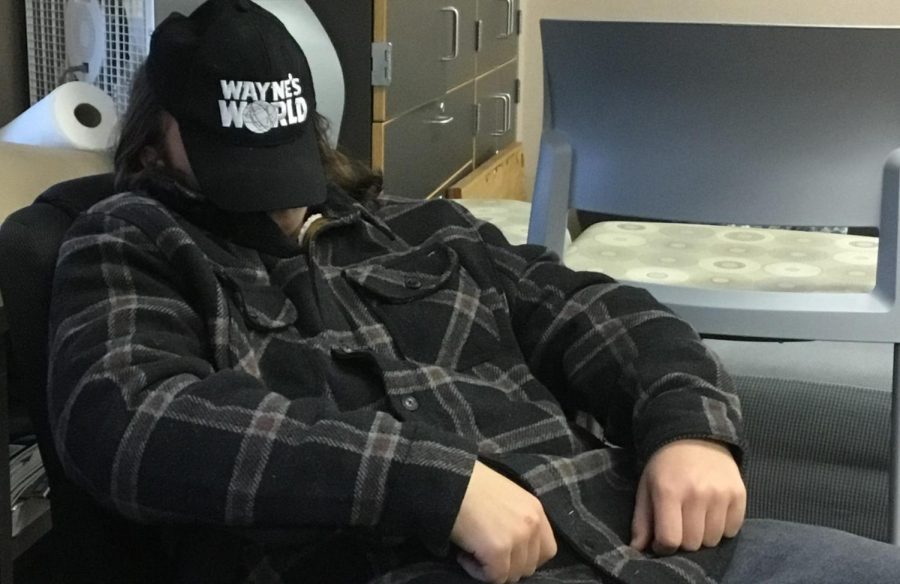Zzzzzz’s: How To Get More Of Them After A Holiday
January 20, 2023
Dozens of droopy-eyed students continue to crowd the hallways as the second week back is concluded. Many continue to work on updating their disrupted sleep schedules, but why does this mundane task continue to be so vexing?
High school students often struggle with maintaining a consistent sleep schedule during the holidays. With the excitement of time off from school and festive events, it can be easy to let bedtimes slip later and later. Regardless of that fact, the celebrations eventually come to an end and classes resume. With that, it is pertinent for students to get back on track with their sleep schedule to ensure they are well-rested and ready for the demands of the school year.
Common factors to the avoidance of sleep can come in the form of stress. Shaun Werbiansky, for example, worries most about his performance in school. “With the arrival of a new semester, I worry most about the upkeep of my grades and not letting them fall.”
Werbiansky is a junior at Elkhart High and is accustomed to adapting his sleep to different schedules. “I am used to staying up late on break—and occasionally on the weekends. Having to get back into a normal sleep schedule has become familiar to me.” He has cultivated a routine that alleviates some of the anxiety that comes with the return of school and has compiled a helpful list of tips to help guide his peers into devising a better sleep schedule.
The list goes as follows:
- Establish a bedtime routine: Having a consistent bedtime routine can help signal to the body that it’s time for sleep. This can include activities such as reading, listening to calming music, or taking a warm bath.
- Limit exposure to screens before bed: The blue light emitted from screens can suppress melatonin production and make it harder to fall asleep. High schoolers should try to avoid using screens for at least an hour before bed.
- Get regular exercise: Regular exercise can help improve the quality of sleep, but it’s important to avoid vigorous exercise close to bedtime.
- Avoid caffeine and heavy meals close to bedtime: Consuming caffeine and heavy meals close to bedtime can make it harder to fall asleep. Students should try to avoid these foods and drinks in the evening.
- Be consistent: It’s important to maintain a consistent sleep schedule, even on weekends. This can help regulate the body’s internal clock and make it easier to fall asleep at night.
- Try to wake up at the same time every day: Waking up at the same time every day will help regulate a proper sleep schedule. Try to wake up at the same time even on weekends.
It may take a few days for the body to adjust to a new sleep schedule, but by following these tips, students can get their sleep back on track after the holidays and feel more refreshed and energized.
As always, it is relevant for students to take these tips with a grain of salt. For example, some find that the use of technology before bed can actually be beneficial. Werbiansky believes that watching media before bed helps him sleep better: “I don’t really manage screen time; I’m sort of dependent on watching something to fall asleep. I don’t think it affects the way I sleep.”
Nevertheless, remember that getting enough sleep is important for the overall health and well-being, and it is also important for academic performance. Practice on perfecting a bedtime routine for a better sleep pattern in the new year!








